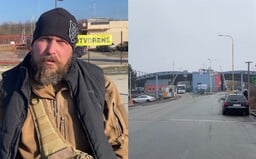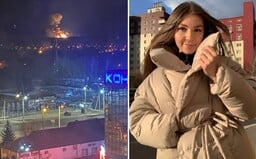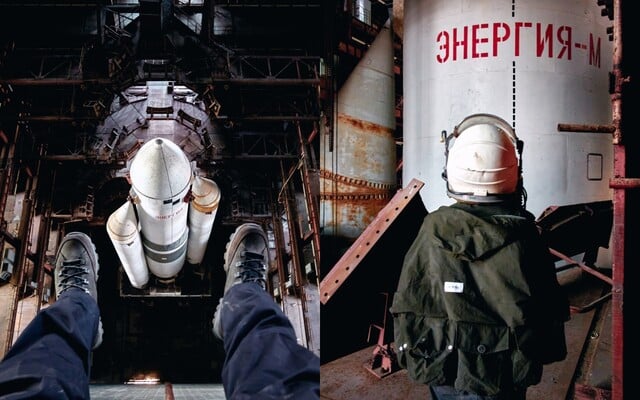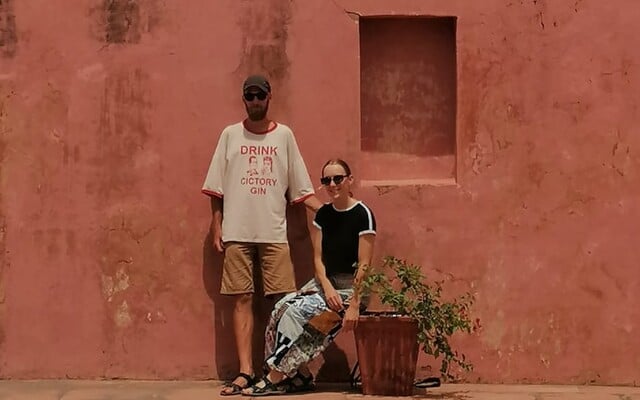 Ozempic can cause vision loss. A new study has shown a link between the drug and eye problems
Ozempic can cause vision loss. A new study has shown a link between the drug and eye problems
Ozempic can cause vision loss. A new study has shown a link between the drug and eye problems
Ozempic can cause vision loss. A new study has shown a link between the drug and eye problems
Petra Helps Ukrainian Refugees at the Border: What Does Psychological Help Look Like at the Border?
What do refugees need the most? What do they experience and how should we treat them? Explains Petra Weiss, humanitarian coordinator for psychological and social assistance from the organization People at Risk.
If problems persis, please contact administrator.
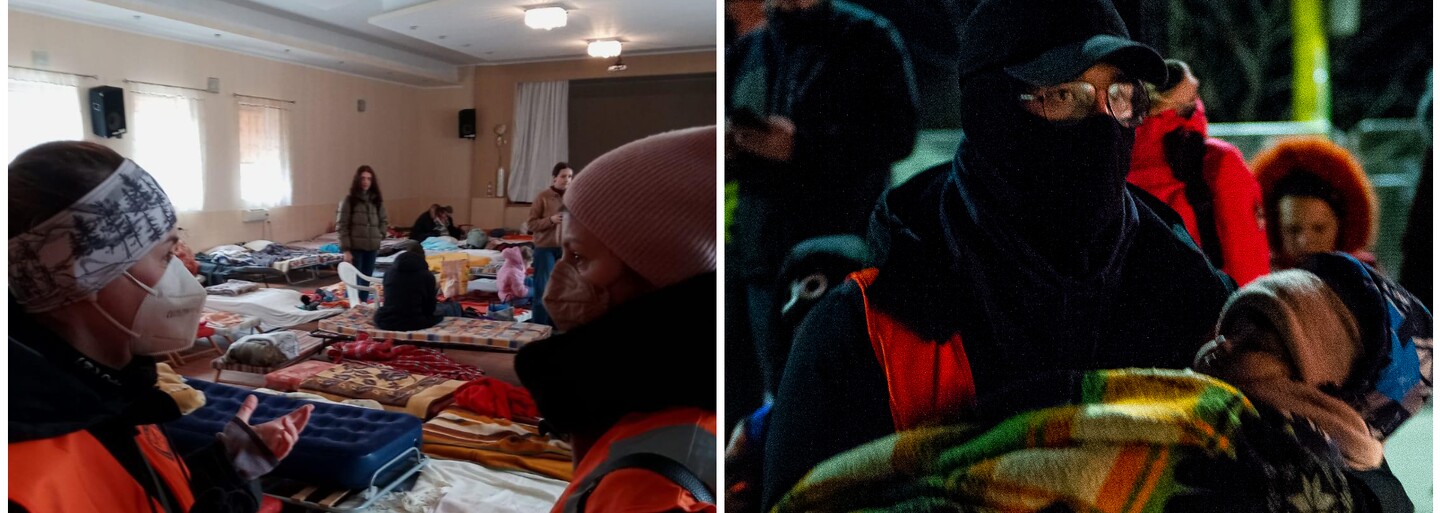
Escaping the war is an extremely traumatic life event that has a huge impact on the human psyche and identity, says Petra. She is currently assisting in crisis crossings with Ukraine, where she is providing crisis intervention to people affected by the war.
What does psychological and social help look like at border? What do refugees need the most? What do they experience and how should we treat them? Explains Petra Weiss, humanitarian coordinator for psychological and social assistance from the organization People at Risk.
Where are you currently working and what does the situation look like there?
We operate at border crossings, with basecamps created in local cultural centres. Where possible, we work alongside colleagues who offer psychosocial assistance to families coming from Ukraine.
The influx of people relatively stable. At some larger border crossings, the influx of people tends to increase slightly, with people arriving on foot, having to wait for 4 to 6 hours.
How do refugees usually act after they cross the border?
It depends, of course, most people are glad this process is done. Some people immediately greet their relatives at the border – when this happens, there are powerful emotions, the struggle and the fear is disappearing. But for some of them, no one is waiting. These people need to find their way around - they know they need to go further, and information is very important to them. When they get acquainted with the situation, they start addressing basic needs - to get warm, eat, drink, relax, take care of their children.
All this is, of course, accompanied by great fatigue, exhaustion. Some people have been on the road for several days. The longer this conflict lasts, the more fatigue, exhaustion, stress or feelings of helplessness increase.
What does psychological help usually look like at the border?
It is a short-term crisis intervention. At the borders, it is not at all desirable to go into any depth, because for Ukrainians, these borders are only a brief spot on the way. What we need to do is make contact and provide them with facilities and warmth. It's about stabilization - the first feeling of security. As I mentioned, many of them have been on the road for several days. This means that they finally have the opportunity to stop and get some relief.
This can mean several things - someone needs to talk, so we create space for them to share their experiences. Some, on the other hand, only need a human presence, others want to rest in silence and are not open to communication at all. We also take care of children who come to the borders unaccompanied by their parents, or children with special needs.
Have you personally come into contact with a child arriving on their own?
I personally haven’t. But our workers took care of a girl who was accompanied to the border by her father who expected that she would be taken care of on the other side of the border. Our social workers can take care of the child once they cross the border, after which the state is entering this process.
What emotions do you encounter most often with the refugees?
The most common ones are stress, sadness and sometimes anger. Emotions tend to catch up with people at night, when everything is quiet. Then we see anxiety, panic attacks, feelings of helplessness and sometimes even great despair. All of these feelings are a natural human response to an extreme situation.
How do you help them in more serious situations, such as the mentioned panic attacks?
We offer them support and help them come to terms with all of these emotions. I want to emphasize that having these emotions is really okay, which is why we are learning and teaching them to accept them. This means that we are creating a safe space for people to survive every emotion. Because not running away from emotions can help us go through different life situations. It is sometimes said that unhappy people are the ones who don’t know how to be unhappy. They displace their emotions, which can in turn lead to much more serious mental health problems.
They lived a normal life until the war has changed everything overnight. How can such a sudden and drastic change affect the human psyche?
Few can put themselves in their shoes and relate. Most of these stories will forever be woven into the human psyche, the soul. It is said that it’s not important what happens, but how we react to it. It is very important that they do not feel helpless and that they now, that it is possible to do something about this situation. The greatest damage can be caused by the feeling of helplessness, which is when we are absorbed by our emotions.
What does it mean for a person to lose the fundamental sense of security - home and homeland?
Situation like this has a huge impact on a person's identity. For example, imagine a woman whose life’s purpose is to provide a safe home for children, when all of a sudden this becomes a thing of the past. It's hard to even imagine. These are extremely traumatic moments that can have a very negative effect on the rest of your life. Of course, this does not mean that one loses one's identity immediately. This identity ends, but life goes on and a new story begins.
What do refugees need the most, in order to be able to resume their lives and integrate into the community?
We start with the basic needs - warmth, food and fluid intake. A fundamental and common need for all people is a sense of security, especially for young children. This is something we can't move forward without. Then we need to be in touch with our loved ones and support each other - there are already operators at the border who offer, for example, SIM cards.
Finally, it is crucial to get information - what can I do and what I can't? Who will help me find my way? Can I settle here? Can I find a job here? How is health and social insurance set up? Thanks to the information, they can act, which gives them strength and the feeling that they can build their own life in the new country.
What topics do refugees discuss with their psychologists most often after integrating into a new country and community?
The more difficult emotions tend to come out only after one gets to safety. We have similar experience with the homelessness project. When they got to the social housing from the street and their body was instructed that they were safe, they suddenly began to experience heavier and deeper emotions. The body is relieved, but for human psyche it is an extremely difficult process and great suffering. So psychological support is very important during these time and people coming from Ukraine should definitely be provided with access to it.
They have to deal with extremely traumatic experiences - the loss of a home and perhaps the death of a loved one. Psychological help also serves as a way to prevent trauma that could develop over time. Without help, people may fall into apathy, reach for addictive substances, lose the ability to take care of their children, or fall into depression.
Why do you think people are so afraid of foreigners and “other people” in general?
It is based on our evolutionary nature. In order to survive, it was necessary to belong to a group. Then we began to distinguish between "we" and "they." We instinctively think and compare everything new we come in contact with. And sometimes we're scared because we can't grasp the “otherness”. Well, just as we are afraid, so are the “others”. I worked in Afghanistan, where the only thing that opened many doors for me was that I was able to smile at people. Such a tiny thing. But I think we still have relatively little experience with the outside world.
I have an innate sense of curiosity, which is why I have visited 70 countries around the world. The world is an open space for me - I wonder about others, who they are, what they think of, what bothers them. As a psychotherapist, I work internationally, and I can say that a girl in Nepal and a girl in Slovakia deal with similar things.
What could help people overcome prejudices?
We need to focus on what unites us. Look at kids. They have no such thing as prejudice, they are very open, driven by curiosity, openness, they want to discover. They don't know this is “someone else”. I wish we all had such curiosity.
We cannot wait for the moment when we will no longer afraid. The definition of courage for me personally is to step forward even though we are afraid. Travel, discover new cultures. But of course, I realize that there are people who are happy on their street or in their village and do not need to leave their community. And it's okay.
So how should we treat and relate to war-affected Ukrainians?
Imagine what you would need and would help you. This is, of course, difficult, but you can always ask them what you can do for them and how you can support them. Just as you would treat someone close to you, a family member, or a friend.
If problems persis, please contact administrator.

